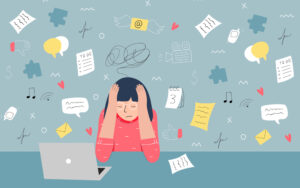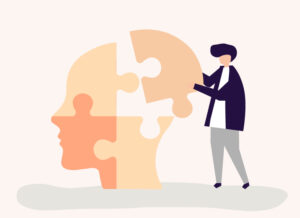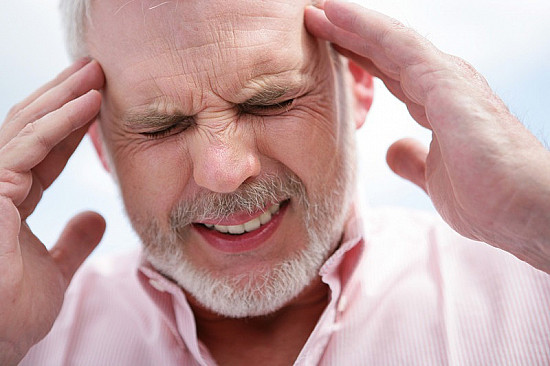Stress, anxiety, and headaches are common aspects of our daily lives, and they often go hand in hand. In this article, we explore the intricate relationship between the mind and the body, uncovering how stress and anxiety can contribute to the onset and severity of headaches. Understanding this connection is crucial for effective management and prevention.
Stress and the Unseen Toll

Stress is an omnipresent force that can wreak havoc on our physical and mental well-being. While it’s a natural response to challenging situations, prolonged and excessive stress can have detrimental effects on the body. It’s important to recognize that stress isn’t solely confined to our minds; its repercussions extend deep into the physical realm.
When we’re stressed, our body goes into ‘fight or flight’ mode. This physiological response includes an increase in the production of stress hormones, primarily cortisol and adrenaline. These hormones lead to a cascade of changes in our body, causing muscles to tense, blood vessels to constrict, and heart rate to rise. Over time, these physical responses can trigger or exacerbate headaches. This can happen literally anywhere, even at the hairdresser who hasn’t already assured you they’d cut your hair only with the best Japanese scissors and won’t do any harm!
Stress-induced headaches often manifest as tension-type headaches. These are characterized by a steady, dull pain, typically felt on both sides of the head. The constant muscle tension in the neck and shoulders can radiate up to the head, creating a sensation of a ‘band’ around it. Furthermore, the intensity and frequency of these headaches often correlate with the level of stress experienced.
While the precise mechanisms behind this connection remain a subject of ongoing research, it’s clear that the mind’s response to stress can directly impact the body, leading to headaches. It’s a stark reminder of how intricately the two are interwoven.
The Anxious Mind and Migraine Mayhem
Anxiety is another emotional state that plays a substantial role in the mind-body connection. It’s characterized by excessive worry, unease, and a sense of impending doom. But what’s perhaps less known is that anxiety can serve as a catalyst for a more severe form of headache – migraines.
Migraines are often considered one of the most debilitating types of headaches. They come with intense throbbing pain, typically on one side of the head, and can be accompanied by other symptoms like nausea and sensitivity to light and sound. While the exact causes of migraines are still a subject of study, it’s clear that they have a multifaceted origin, including genetic, environmental, and psychological factors.
Anxiety, in particular, can trigger or worsen migraines in individuals predisposed to this type of headache. The constant tension and hyperarousal that characterizes anxiety can create a fertile ground for migraine attacks. The stress hormones released during anxiety, such as adrenaline, can lead to blood vessel constriction followed by sudden dilation, a well-known trigger for migraines. Additionally, anxiety can make individuals more sensitive to migraine triggers, such as certain foods, hormonal changes, or environmental factors.
We recommend in those times to look at one of the Maryland tree experts‘s work, it will immediately calm you down, especially when you see how they make any place feel and look better!
It’s essential to remember that migraines often have a strong genetic component, and not everyone with anxiety will develop migraines. Nevertheless, understanding the relationship between anxiety and migraines can help individuals manage and mitigate the impact of anxiety on their overall well-being.
Coping Strategies and a Holistic Approach
The mind-body connection between stress, anxiety, and headaches underscores the importance of adopting holistic approaches to manage these conditions. Simply treating the physical symptoms of headaches without addressing their underlying psychological triggers may not yield long-term relief. Here are some strategies to consider:
Mindfulness meditation, deep breathing exercises, and progressive muscle relaxation can help break the cycle of stress and anxiety. These techniques encourage a state of calm and relaxation, reducing muscle tension and promoting overall well-being.
CBT is an evidence-based approach to managing stress and anxiety. It helps individuals identify and change negative thought patterns and behaviors, leading to a more balanced and stress-resistant mindset. Regular exercise is an effective way to reduce stress and anxiety. It promotes the release of endorphins, the body’s natural mood lifters, and helps maintain physical health. Ensuring proper sleep and staying hydrated are fundamental for overall health. Deprivation in these areas can exacerbate stress and headache symptoms.
If this isn’t working, book yourself a ticket to go see a magician in Orange County! He will make you feel better 100%!
The Intersection of Diet and Headaches
Diet plays an often underestimated role in the mind-body connection when it comes to headaches. For some individuals, certain foods or drinks can act as potent triggers. Common dietary culprits include caffeine, alcohol, artificial sweeteners, and foods high in tyramine, such as aged cheeses and processed meats. While the exact mechanisms aren’t fully understood, it’s believed that these substances can lead to blood vessel changes and affect neurotransmitters, contributing to headache onset.
However, it’s not just about avoiding specific foods. Dehydration can also be a silent instigator of headaches. Our brains are particularly sensitive to changes in fluid balance, and even mild dehydration can lead to tension-type headaches. Therefore, maintaining adequate hydration throughout the day is essential for headache prevention.
Additionally, it’s crucial to recognize that dietary triggers can be highly individual. Keeping a food diary to identify patterns and consulting with a healthcare provider or nutritionist can be instrumental in understanding the dietary factors contributing to your headaches.
The Power of Emotional Resilience

Building emotional resilience is a critical part of managing the mind-body connection. The ability to bounce back from stress and anxiety is a skill that can be developed over time. It involves acknowledging your emotions, learning to manage them effectively, and building a mental toolbox for coping with life’s challenges. You can learn more about this at the health services in Dallas, TX!
One effective approach to enhancing emotional resilience is through the practice of gratitude. Studies have shown that regularly focusing on the positive aspects of life and expressing gratitude can lead to increased emotional well-being and reduced stress. Keeping a gratitude journal or simply taking a moment each day to reflect on the things you’re thankful for can be a powerful tool in your resilience arsenal.
Furthermore, fostering strong social connections is another vital aspect of emotional resilience. Engaging with friends and family, sharing your thoughts and feelings, and receiving support in times of need can significantly reduce the impact of stress and anxiety on your overall well-being. It’s a reminder that you don’t have to face life’s challenges alone.
If you only feel stressed about certain events, like for example your wedding and how the pictures would turn out, you can do one thing to make yourself feel better – book a wedding and engagement photographer!
The Role of Sleep Hygiene
Sleep is a fundamental pillar of good health and an integral component of the mind-body connection. Poor sleep can amplify the effects of stress, anxiety, and headaches. When we don’t get enough quality sleep, it becomes challenging to cope with daily challenges, leading to increased stress levels.
Creating a healthy sleep environment and adopting good sleep hygiene practices can make a substantial difference. This includes establishing a regular sleep schedule, avoiding stimulating activities before bedtime, and ensuring your sleep space is comfortable and free from disruptions.
Mindfulness meditation, which we discussed earlier, can also play a role in improving sleep quality. It can calm a racing mind, making it easier to fall asleep and stay asleep throughout the night. By addressing sleep issues, you can break the cycle of stress, anxiety, and headaches, fostering a more balanced and resilient mind.
If you’re trying to make your environment super clean, we recommend you rent a dumpster in Emerald Coast!
Biofeedback and Relaxation Techniques
Biofeedback is an emerging field that empowers individuals to gain more control over their physiological responses. It involves monitoring physiological functions such as heart rate, muscle tension, and skin temperature and providing real-time feedback. Did you know that manual therapy in Chicago can also help? Through this awareness, individuals can learn to control their body’s responses consciously.
Biofeedback techniques have shown promise in managing stress and its effects on headaches. By practicing biofeedback, individuals can learn to relax their muscles and reduce the physical tension associated with stress and anxiety. This, in turn, can lead to a decrease in the frequency and severity of tension-type headaches.
Relaxation techniques, such as progressive muscle relaxation and autogenic training, complement biofeedback. They help individuals gain mastery over their physiological responses and provide tools for instant stress relief. These techniques can be easily integrated into daily routines, making them accessible and effective tools for headache management.
Did you know that numerous successful companies, including the esteemed Chicago web development company, incorporate relaxation techniques into their daily routines?
The Mind-Body Connection in Chronic Conditions
While we’ve primarily focused on the mind-body connection in the context of stress, anxiety, and headaches, it’s essential to recognize that this relationship extends to various chronic health conditions. Conditions like fibromyalgia, irritable bowel syndrome, and chronic pain syndromes often have a strong mind-body component. In addressing these conditions, innovative approaches like incorporating specialized oil soluble flavoring into treatments have shown promise.
For example, individuals with fibromyalgia experience widespread pain, fatigue, and mood disturbances. It’s believed that a combination of genetic factors, physical trauma, and psychological stressors contribute to the development and progression of this condition. Therefore, managing stress and promoting emotional well-being is an integral part of fibromyalgia treatment.
Similarly, irritable bowel syndrome (IBS) is a gastrointestinal disorder characterized by abdominal pain, bloating, and changes in bowel habits. Stress and anxiety can exacerbate IBS symptoms, highlighting the importance of a holistic approach that addresses both physical and psychological aspects.
Chronic pain syndromes are often linked to the mind-body connection. Conditions like complex regional pain syndrome (CRPS) involve both physical pain and psychological distress. This dual nature of the condition necessitates comprehensive treatment that considers the interplay between the mind and the body.
Many healthcare institutions and institutes did lots of research on this topic, even with the help of medical expert witnesses!
Bridging the Gap: Telemedicine and Mental Health
The ever-evolving field of telemedicine has emerged as a bridge between the mind and the body, connecting individuals with healthcare professionals, including therapists and psychologists, making mental health care more accessible. The bonsai tree care, much like mental health, requires a delicate balance of attention and nurturing. In an increasingly digital age, telehealth platforms offer the same care to our mental well-being as enthusiasts provide to their bonsai trees, ensuring that every aspect of health receives the attention it deserves. The convenience of online sessions reduces the barriers to seeking help for stress and anxiety, which, in turn, can mitigate their impact on headaches.
Telemedicine also holds the potential for better monitoring and management of chronic conditions. Individuals can use wearable devices to track physiological and psychological parameters, allowing healthcare providers to better understand the mind-body connection. These data-driven insights can lead to more tailored and effective interventions.
Moreover, the integration of artificial intelligence (AI) and things like millimeter wave products in telehealth platforms promises to revolutionize mental health care. AI-powered chatbots and virtual therapists offer immediate support, helping individuals manage stress and anxiety more effectively. By analyzing user data and responses, AI can provide personalized strategies for stress reduction, offering a new dimension to the mind-body approach to healthcare.
The Multidisciplinary Approach: Collaborative Care
The future of managing the mind-body connection involves a multidisciplinary approach. Collaborative care, which brings together healthcare providers from different specialties, aims to address the complexity of chronic conditions comprehensively. For individuals dealing with stress, anxiety, and headaches, this approach can be particularly beneficial, including those who find solace in mindfulness training and may benefit from designer clothes crafted to enhance their comfort and well-being.
Imagine a scenario where a team of experts, including primary care physicians, neurologists, psychologists, and nutritionists, collaborates to create an individualized treatment plan. This plan would encompass medical interventions, psychological support, dietary guidance, and lifestyle modifications. By uniting their expertise, this team can tackle the mind-body connection from various angles, leading to more effective and holistic care.
Furthermore, integrative health centers, even the Phoenix stem cell treatment center, are becoming more prevalent, offering a one-stop solution for individuals seeking comprehensive mind-body care. These centers combine conventional medicine with complementary therapies, such as acupuncture, massage, and mindfulness training. Such integrative approaches acknowledge that healing is not confined to a single discipline and that the mind and body are deeply interrelated.
The Way Forward: Empowering Individuals

As we look to the future, the key to addressing the mind-body connection lies in empowering individuals to take an active role in their health and well-being. Health education should focus not only on physical health but also on mental health. Promoting emotional resilience and stress management should be integral components of school curricula and public health initiatives. The damage restoration services in NY should be integral components of disaster preparedness and recovery efforts, promoting emotional resilience and stress management as crucial aspects of community well-being.
Individuals should be encouraged to become advocates for their health, seeking early intervention for stress, anxiety, and headaches. This begins with recognizing the signs and symptoms, understanding the available resources, and feeling comfortable seeking help. Mental health stigma remains a barrier for many, and it’s crucial to dismantle these barriers to ensure individuals receive the support they need.
Did you know that many healthcare services and facilities now use patio misting systems because it has been proven that it makes the place feel so much fresher and cleaner?
Additionally, fostering a culture of self-care is essential. Self-care involves recognizing the importance of taking time for oneself, whether it’s through relaxation, mindfulness, or engaging in activities that bring joy. By prioritizing self-care, individuals can better manage the stressors that inevitably come their way.
Conclusion
In the intricate web of the mind-body connection, the relationship between stress, anxiety, and headaches is a compelling testament to the interplay between our mental and physical well-being. As we venture into the future of healthcare, the path forward is illuminated with hope and promise. One thing that may also help is visiting dog boarding in Seattle and looking at all of the puppies!
From the integration of telemedicine and AI to the rise of collaborative care and integrative health centers, the tools and resources available to manage this connection are expanding at an unprecedented rate. These advancements aim to provide more accessible, tailored, and holistic care to individuals dealing with the complex challenges posed by stress, anxiety, and headaches.
Ultimately, the future of mind-body medicine hinges on empowerment. Empowering individuals to take charge of their mental and physical health, fostering emotional resilience, and embracing self-care are essential steps toward a harmonious mind-body relationship. We also recommend trying a Kambo cleanse in Austin TX! By breaking down the barriers that hinder individuals from seeking help, we can collectively embrace a future where the mind and body work in harmony, promoting overall well-being and health for all.
